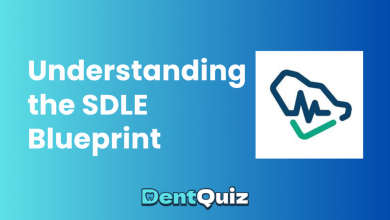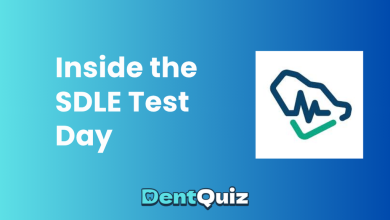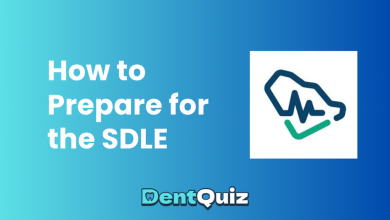The Ultimate Beginner’s Guide to the Saudi Dental Licensure Examination (SDLE)
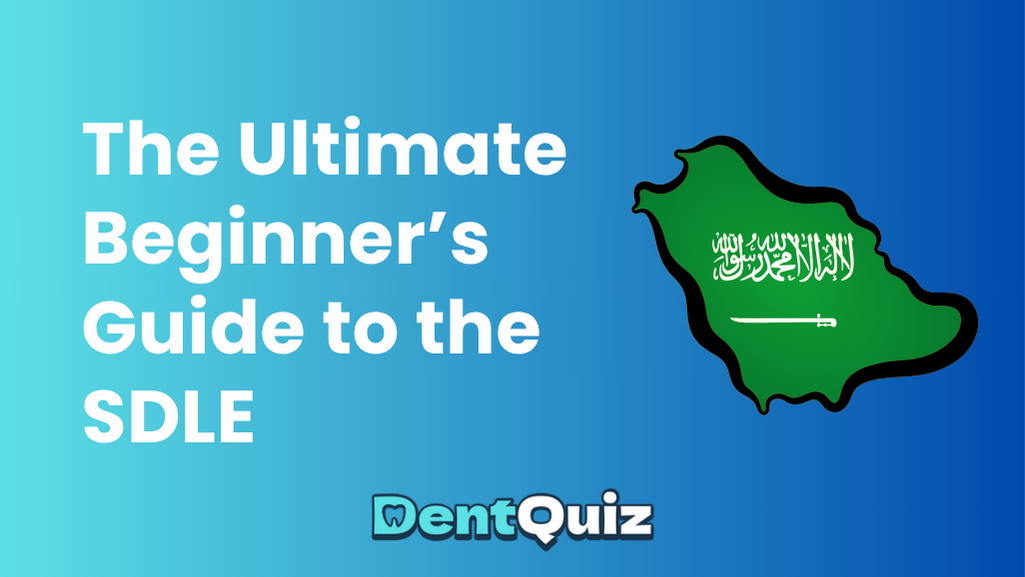
If you’re planning to practice dentistry or pursue postgraduate training in Saudi Arabia, the SDLE (Saudi Dental Licensure Examination) is a major milestone. This guide explains what the SDLE is, how it’s structured, who should apply, and practical tips to help you prepare with confidence.
What is the SDLE and why does it matter?
The Saudi Dental Licensure Examination (SDLE) is the official assessment used by the Saudi Commission for Health Specialties (SCFHS) to determine whether candidates have the knowledge and clinical reasoning required to practice dentistry safely in Saudi Arabia. Passing the SDLE is often mandatory for international graduates and graduates of local dental schools who want to register and work in the Kingdom or apply for residency training.
The SDLE evaluates a broad range of dental knowledge — not only factual recall but also interpretation, decision making, and clinical problem-solving. Think of it as a standardized check that ensures consistent quality and patient safety across dental practitioners.

Who should take the SDLE?
Typical candidates include:
- Final-year dental students (one year away from graduation) who plan to practice in Saudi Arabia.
- Recent dental graduates who need an SCFHS license.
- International dental graduates who want to be eligible for Saudi residency programs or employment.
Before applying, make sure your primary dental qualification (BDS or equivalent) is recognized and you meet SCFHS eligibility rules.
SDLE format: What to expect on the test
The SDLE is a computer-based exam composed of multiple-choice questions (MCQs). Here are the key facts:
- Number of questions: 300 MCQs (this may include a small number of unscored pilot items).
- Structure: The exam is divided into three sections of 100 questions each.
- Duration: Total testing time is approximately 6 hours, with scheduled breaks between sections. Each section typically has a 120-minute time allocation, and there is a pooled break time that candidates can split between the breaks.
- Question style: Single-best-answer MCQs. Many items are scenario-based and test application rather than rote memory.
In short, the SDLE is lengthy and mentally demanding — pacing and exam-day strategy matter as much as content knowledge.
The SDLE blueprint — how content is distributed
The SDLE blueprint outlines the subject weights so you can prioritize study time. Typical distribution (approximate) is:
- Restorative Dentistry (including Prosthodontics & Operative Dentistry): ~40%
- Periodontics: ~18%
- Endodontics: ~17%
- Oral Medicine / Oral Surgery: ~15%
- Orthodontics & Pediatric Dentistry: ~10%
Additionally, cross-cutting topics such as local anesthesia, infection control, ethics, and patient safety appear across sections. Use the blueprint to focus on high-weight areas while not neglecting smaller but frequently tested topics.
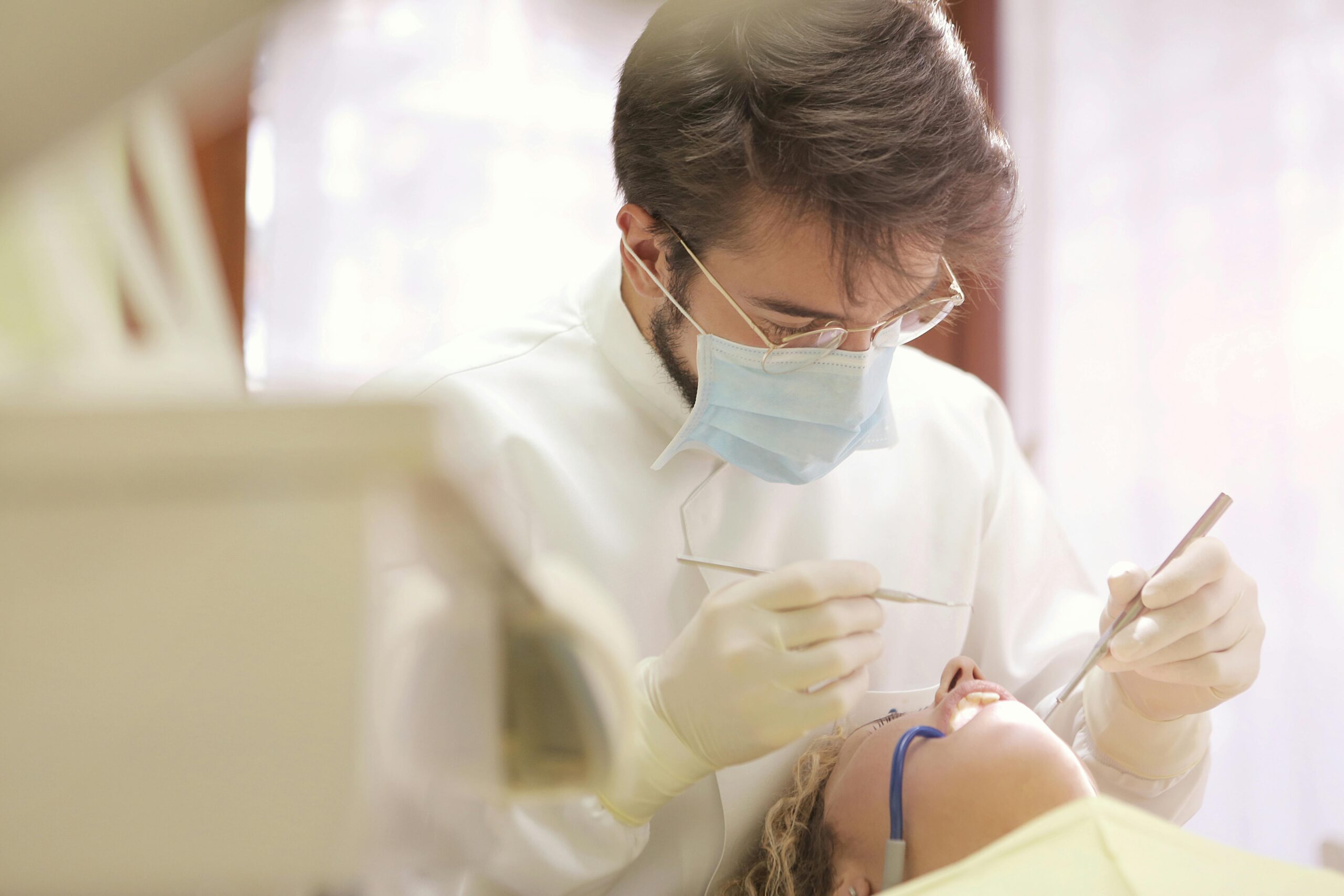
How SDLE is scored and results timeline
The SDLE uses a standard reporting scale. SCFHS holds a standard-setting exercise to establish the passing score and ensure fairness. After the test window closes, psychometric analyses are performed and results are typically released within a few weeks.
Candidates usually receive a statement of results and, when available, a feedback report that compares performance by subject areas. This feedback is valuable whether you pass — to identify strengths — or fail — to highlight weak areas for future study.
Practical preparation roadmap (study strategy)
Preparing for the SDLE can be overwhelming if you don’t have a plan. Below is a practical, step-by-step study roadmap you can adapt to your schedule:
- Assess and timeline: Determine how many months you have. Create a weekly plan that allocates more time to Restorative, Periodontics, and Endodontics.
- Gather reliable resources: Use standard dental textbooks, summarized notes, and question banks that reflect the SDLE blueprint. Review recommended texts for each major area.
- Active studying: Focus on understanding concepts and practicing application-style questions. Summarize tricky topics into short notes or flashcards.
- Regular practice tests: Take full-length timed practice exams to build stamina and refine time management. Review errors carefully and log topics that recur.
- Focused revision: In the last 4–6 weeks, prioritize weaker domains and practice mixed-question sets to simulate exam conditions.
Consistent, spaced repetition and frequent self-assessment are more effective than last-minute cramming.
Test-day tips and rules you must know
Test day is a controlled environment with strict security. A few essential tips:
- Arrive at least 30–45 minutes early and bring required IDs and your scheduling permit.
- Follow the test center rules: electronic devices, recording equipment, and unauthorized materials are prohibited.
- Use the allotted breaks wisely: rehydrate and eat a light snack, but don’t waste break time.
- If you must leave during a block, sign out and sign back in per the test center procedure — excessive unscheduled breaks may be reported.
Remember: professionalism and calm conduct on the test day are part of the process. Aggressive or disruptive behavior can lead to invalidation of your attempt.
If you don’t pass — what next?
Not passing on the first try is not the end. Many candidates retake the SDLE after targeted, methodical preparation. The SCFHS permits multiple attempts per year (check the latest eligibility rules). Use the feedback report to build a stronger study plan and focus on weak areas. Consider study groups, tutoring, or guided mock exams if you need structure.
Final thoughts
The SDLE tests more than memory — it evaluates clinical reasoning, safe decision-making, and readiness to practice. Start early, follow a blueprint-focused study plan, practice under timed conditions, and prioritize wellbeing during preparation. With steady effort and smart revision, you can approach test day with confidence.
For more targeted resources, sample questions, and mock exams tailored to the SDLE blueprint, visit DentQuiz and explore our study tools and practice tests designed specifically for candidates preparing to succeed in the Saudi Dental Licensure Examination.

